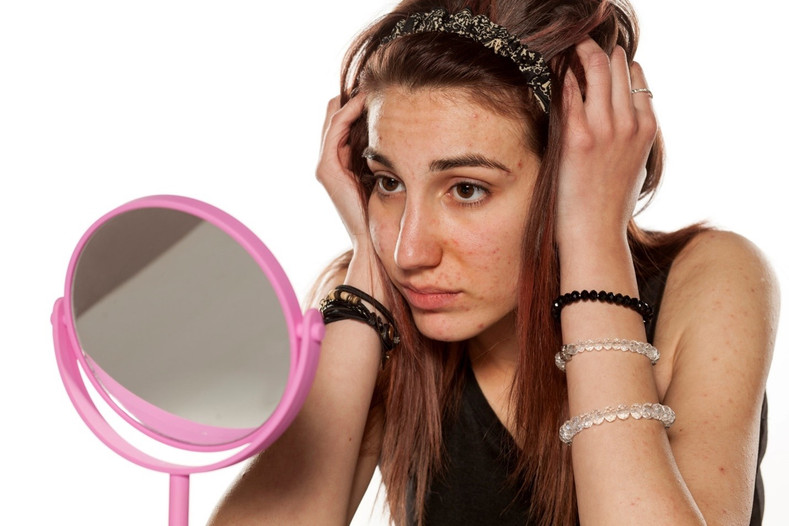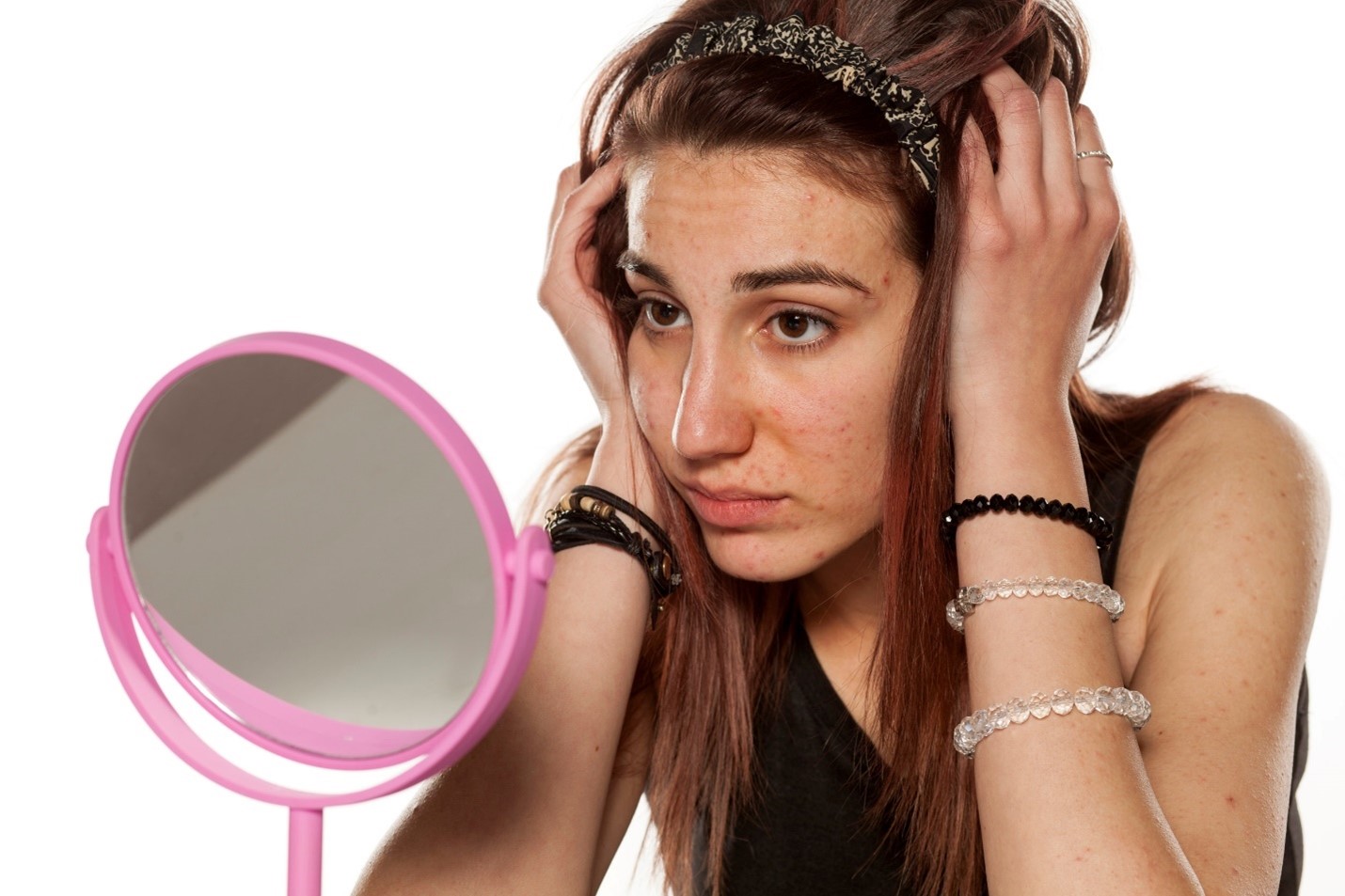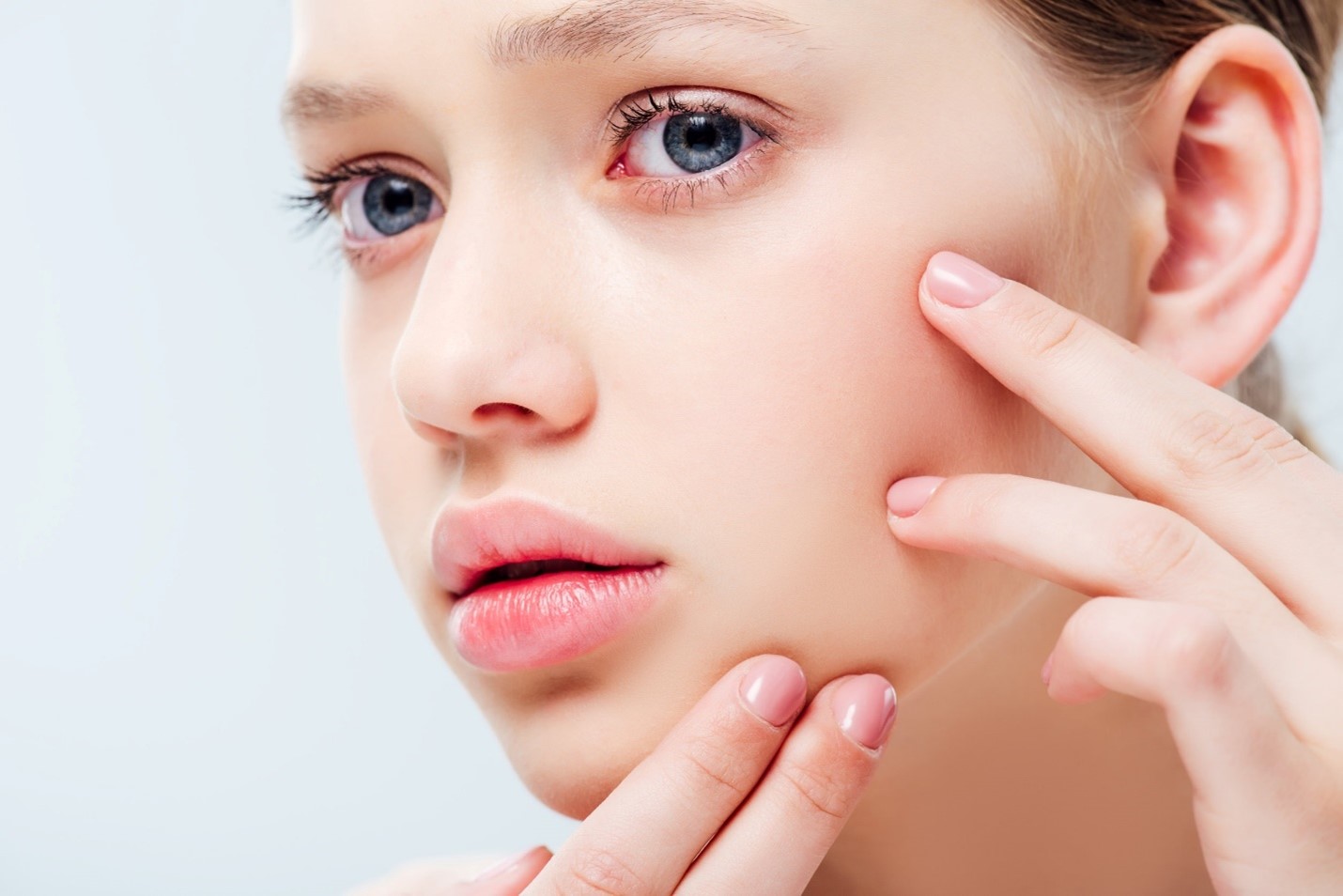What Causes Oily Skin

Everybody has a little oil in their skin. Under the skin's pores, the sebaceous glands produce oil that keeps skin hydrated. However, sometimes there's an overproduction of oil that can cause the skin to be especially shiny and even lead to acne.

You may be wondering what causes skin to be oily in the first place. Here's a look at some causes of oily skin:
- Genetics. Overactive sebaceous glands do tend to be genetic, so if your mom or dad has oily skin, you may have them to thank.
- Age. Sebaceous glands tend to slow down as people age, along with collagen production. So, while you may have oily skin as a teenager or even into your 20s and 30s, that may not be the case as you reach middle age. Just keep in mind that you may want to evaluate the situation with your dermatologist as you get older.
- Environment. Sometimes the climate can affect your skin. Humidity and warm weather can stimulate the production of oil, while cold climates can dry skin out. You might have to change your skincare routine based on the seasons.
- Improper washing or scrubbing. If you have oily skin, you might want to scrub it with exfoliants and other abrasives, or wash it too often. However, that type of washing can dry skin out and cause the sebaceous glands to overproduce oil. Then you're back where you started. It's important to use gentle cleansers on skin. Also, you should wash your face only twice a day.
- Medication. Take a look in your medicine cabinet. Sometimes oral contraceptives and hormone therapies can cause overproduction of oil. Steroids and some medications that cause dehydration might also signal your sebaceous glands to produce more oil, causing oily skin.
- Diet. Take a look at what you're eating, too. Greasy foods, foods high in carbohydrates and foods with refined sugars can stimulate oil production, creating oily skin.
- Hormonal changes. Sometimes oil production can be stimulated by the androgens, which are hormones that contribute to growth and reproduction. Levels can be higher during puberty, during pregnancy and just before menstruation and during menopause.
- Using the wrong skin products. Sometimes, using too many heavy creams or products that contain oil can make skin oilier. If you have oily skin, make sure you're using cleansers and moisturizers that are made for oily skin.
- Skipping the sunscreen. Especially when you're out in the sun or when the sun is strong, make sure you wear sunscreen. Otherwise, your skin can get dried out and overproduce oil.
- Skipping moisturizer. You might think oily skin doesn't need moisturizing, but it does, especially if you're using salicylic acid or benzoyl peroxide to treat acne. Use a lightweight moisturizer to keep your skin from drying out. Look for "oil free" or "non-comedogenic" on the label.

You can treat oily skin and minimize its appearance by keeping skin clean, blotting the skin when it appears oily, using the right face and body skincare products, eating right and staying hydrated.
Sources:
